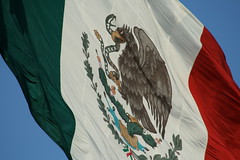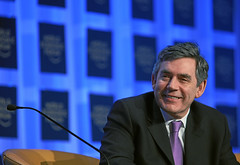Ever since Hillary Clinton put a stop to her campaign to win the Democratic nomination and Barack Obama became the presumptive nominee I have been forcing myself not to draw comparisons between the current presidential race in the United States and our experience in Mexico a couple of years ago.
I believe that for democracy to be functional, electoral outcomes should result from voters’ enforcement of accountability. If a party in government has done right by the people, they should reward it by voting for its re-election. If, on the contrary, a party in government has failed in fulfilling its mandate, elections are the mechanism to ensure its demise from power and allow for another party to deliver on the demands of the majority.
Yet modern campaigning can often stand in the way of democratic accountability. Case in point is the 2006 Mexican presidential election. Andres Manuel Lopez Obrador, a popular Mayor of Mexico City, started his bid propelled by polls agreeing on his front runner status as candidate. His campaign slogan was irresistible. "Primero, los pobres" ("First, the poor") was a simple and poignant reminder of what the first opposition government after 70 years of one party rule had failed to do: address effectively Mexico’s extreme inequality and poverty.
Lopez Obrador has pointed to the uneven and unfair conditions that ensured his unexplainable loss of the presidency to Felipe Calderon, a lackluster conservative candidate who promised more of the same failed policies courtesy of the Vicente Fox administration. Until now he has refused to acknowledge the obvious mistakes his campaign made in connecting with the voters and successfully presenting its message.
Completely certain of his triumph Lopez Obrador chose not to attend the first of the presidential debates which resulted in his first setback in the polls. Constituencies were regularly thrown under the bus by the Lopez Obrador campaign, as their internal polling showed them these were people not needed to secure a win. The candidate's own stubbornness and the zeal of many of his supporters raised suspicion amongst those not comfortable with Obrador's inspired leadership being offered as the solution to the country's woes.
Lopez Obrador's public persona and his campaign's confidence on the power of his charisma above the power of his arguments paved the way for some nasty characterizations made by the conservative press and by Calderon's negative campaign which influenced voters’ perceptions. Lopez Obrador was presented as messianic and full of himself. He was deemed an out-of-touch populist supported only by leftist intellectuals and those who did not know any better. He did not become president in part because by the end of the campaigns, while most Mexicans still disapproved of Vicente Fox's mismanagement many had come to believe that the Lopez Obrador alternative was scarier.
The Obama campaign has been falling into some of the same traps and thus has found itself in the current situation evinced by the latest polls: he is tied with the Republicans after 8 years of Bush. According to Rasmussen McCain is already ahead in the electoral college contest with 200 votes against Obama's 193. Campaigns do matter. Negative propaganda works. Ignoring or offending independents and the undecided takes a toll on a candidate's chances to win an election. Yet Obama and his supporters seem bent on staying on the path already transited by another progressive politician just across the border. At the end all mistakes will be redeemed as a result of Obama’s transformational, transcendental and post-partisan halo. Right.




